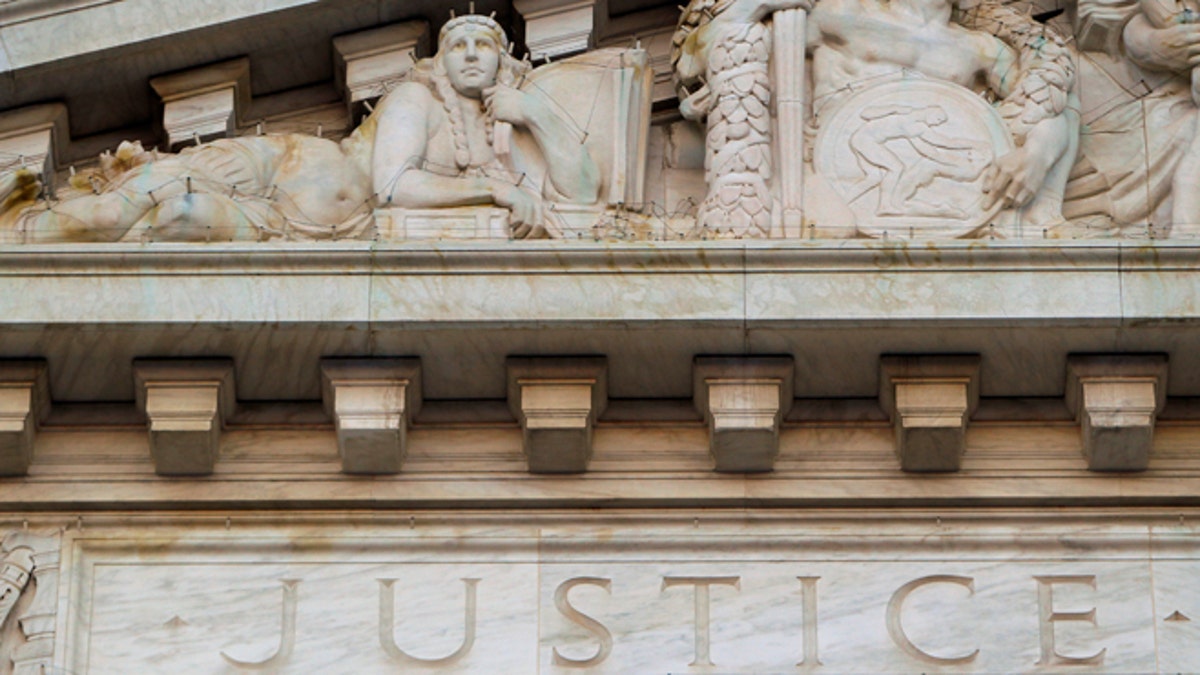
A detail of the United States Supreme Court is seen at dawn in Washington. (Reuters)
In what’s being hailed by many as a victory for gun-control advocates, the recent Supreme Court decision on “straw” purchases of guns has completely muddled the whole issue of background checks and “straw” purchases for potential gun owners.
The court ruled 5-4 that, as The Hill.com put it, “one legal gun owner may not acquire a firearm on behalf of another — a practice known as "straw" purchasing.
[pullquote]
The case heard by the high court involved a Virginia police officer, Bruce Abramski, who bought a gun, a Glock 19 handgun, for his uncle. The police officer, who could get a discount on guns, bought the gun in Virginia. He then transferred it to his uncle, who lived in Pennsylvania, through a second licensed dealer in the state.
The Obama administration successfully prosecuted Abramski for two felonies. The Justice Department said that the same federal background check form where Abramski indicated that he wasn’t a straw purchaser involved perjury as well as for providing false information to the gun dealer who sold the gun.
The five Justices who supported Obama’s prosecution, claimed: “That information helps to fight serious crime. When police officers retrieve a gun at a crime scene, they can trace it to the buyer and consider him as a suspect.”
But there are two big problems with their claim. Abramski transferred the gun not to some ordinary individual, but through a federally licensed dealer in Pennsylvania. If the gun were to ever be involved in a crime, it could have been tracked back to the Pennsylvania dealer. There was no cover-up here. Instead there was transparency. The government would see that Abramski’s uncle was the last person to possess the gun.
There was no intent of deceiving anyone. Nor did the exchange make it so the government couldn’t trace the firearm. Abramski’s motive was simply to get his uncle a discount on a gun.
Moreover, there is actually no public safety argument, as registration doesn’t actually solve crimes. The reality of registration doesn’t work the way the Justices think that it does. Crime guns are very rarely left at the crime scene, and when they are left at the scene, they have not been registered — criminals are not stupid enough to leave behind a gun that’s registered to themselves. In the few cases where registered crime guns are left at the scene, the criminal has been seriously injured or killed. That means, the crimes would have been solved anyway even without registration.
Hawaii has required registration and licensing for over 50 years. Nevertheless, the police have yet to point to any crimes actually solved using registration to trace the guns. But in 2000, it was taking about 50,000 hours of police time in just Honolulu to register and license guns, time that could have been used to put police on the street to solve crimes in ways that we know work. Other places with registration in the U.S. have seen similar wastes of time.
The experience in Canada is similar: there is simply no evidence that the handgun registry, started in 1934, has been important in solving a single homicide.
However, Justice Kagan’s opinion in Abramski v. United States only creates confusion. While she acknowledged that Mr. Abramski is allowed to buy a gift, she argued that this particular transaction was illegal because the transfer was a “straw” purchase. Abramski did not give a gift because he resold the gun. The problem is that Abramski sold his gun at the below market price, clearly the type of thing that the IRS regularly classifies as a “gift.”
So what is the message the court is trying to send to Americans who purchase guns? Are gifts OK? Is the issue that Abramski just didn’t give a big enough gift? Are we going to let the Obama Justice Department determine whether something, be it a gun or a book or a sweater, is a gift? Or shall the IRS make that determination? If you were to give your child a house for a dollar, the IRS would classify that as a gift for tax purposes.
Officer Abramski’s life has been ruined. The Supreme Court’s decision in Abramski v. United States merely confirmed a horrible injustice, with no understanding of how gun tracing works, and without producing any increased safety for Americans.
